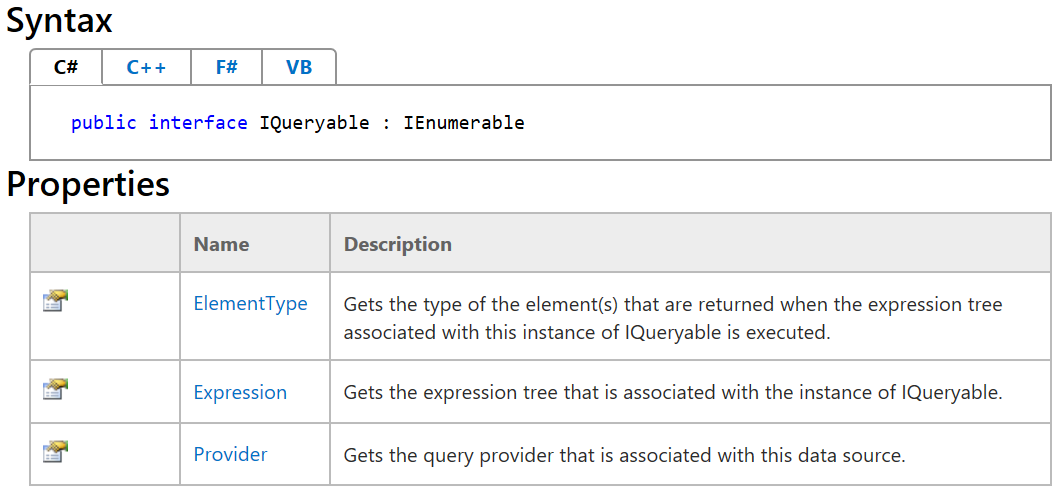In part 1 we learned that you can swap parts of an Expression Tree to another compatible (i.e. with a matching return type) expression. Swapping is, in fact, the easiest thing to do - with a bit more work we can construct a serializable representation of almost any bit of C# code. This opens great avenues for Domain Driven Development and introducing hot-swappable, dynamic, yet safe parts of logic to your application.
One of the best examples of the power we get is shown by introducing a reusable expression function with LINQKit.
internal static class AddressSubqueries
{
internal static Expression<Func<string, string, string>> FormatCityAndProvince =
(city, province) => "The glorious city of " + city
+ " of the wonderful province of " + province;
}
//used like this:
public IQueryable<string> GetStandardAddressDescription(int addressId)
{
return DataContext
.Addresses.AsExpandable() // this hooks in LINQKit
.Where(x => x.AddressId == addressId)
.Join(
DataContext.StateProvinces,
adr => adr.StateProvinceId,
prov => prov.StateProvinceId,
(adr, prov) => AddressSubqueries.
FormatCityAndProvince // <==
.Invoke(adr.City, prov.Name))
.FirstOrDefault();
}
In the previous part we have determined that:
- IQueryably consists of a Provider and an Expression Tree
- Expression Trees can be combined almost as easily as pieces of C# code
In this article, we will look at treating our queries are reusable chunks of logic and combining them into more complex yet still readable queries like this:
public IQueryable<ProductModelOrderStatisticsDto> GetProductModelOrderStats()
{
// a bigger, more detailed query
IQueryable<WorkOrderSummaryDto> allDurationsAndRoutings =
GetWorkOrderSummaries();
// is wrapped by an aggregation to retrieve statistics
var averagePerModel = allDurationsAndRoutings
.GroupBy(x => new { x.ProductModelId, x.ModelName })
.Select(x => new ProductModelOrderStatisticsDto
{
ModelId = x.Key.ProductModelId,
ModelName = x.Key.ModelName,
AverageDuration = x.Where(y => y.DurationDays.HasValue)
.Average(y => y.DurationDays.Value),
AverageRoutings = x.Average(y => y.RoutingsCount)
});
return averagePerModel;
}Many .NET developers don’t realize or don’t pay attention to the differences between IEnumerable and IQueryable. Most tutorials on the topic don’t go beyond trivial examples, thus missing the huge potential hidden inside.

IQueryable is IEnumerable and much more.
